Obama’s UN “foreign terrorist fighter” resolution follows templates set by the Bush administration.
The escalating international response to this summer’s victories and barbarities of the self-styled caliphate of the “Islamic State” of Iraq and the Levant (ISIS) dominated headlines when world leaders convened for the opening of the United Nations General Assembly in September. Military action by US President Barack Obama‘s coalition of Western and Wahhabist states to “degrade and destroy” the conquering jihadists was obviously the biggest news.
For Obama, the assembly was the preeminent stage for appealing for worldwide support. But he also sought at the UN a more durable, institutionalized take-away: A Security Council mandate for states to curb the threat of “foreign terrorist fighters.” By a unanimous vote, he got the resolution.
A Binding Resolution
“It is legally binding,” Obama emphasized to the council. “It establishes new obligations that nations must meet.” Once again, the Security Council has used its extraordinary enforcement power under Chapter VII of the UN Charter to command all member states to conform their national laws to the council’s requirements, in order to contain an imminent threat to international peace and security, with an apparently perpetual monitoring process to press for compliance.
Some see a certain irony in the American embrace of Security Council “legislation” that is binding on national governments. After all, it is in Washington that suspicions of UN encroachment on national sovereignty resonate most powerfully, reliably exciting conservatives’ bile toward the UN.
Yet it was the conservative administration of President George W. Bush — which would famously question the “relevance” of the UN when the Security Council balked at its plans to invade Iraq — that pioneered the council’s legislative mandates to member states. Prodded by the British and French, who hoped to channel the new administration’s furious reaction to the attacks of September 11, 2001, in a multilateral direction, the Americans asked the council just two weeks after the tragedy to impose a breathtaking set of antiterrorism mandates on all states.
In Resolution 1373, the Security Council “decide[d] that all States shall: (a) prevent and suppress the financing of terrorist acts; (b) criminalize the willful provision or collection” of funds for terrorism; “(c) freeze without delay funds and other financial assets” of, and “deny safe haven” to, terrorist backers; and adopt measures “suppressing recruitment of members of terrorist groups.”
A dozen years later, the counterterrorism committee the council established to monitor implementation of the resolution still presses states for replies to its inquiries. Its secretariat keeps national bureaucracies focused on terrorism, even when political leaders’ attention moves on to other issues.
… the overwhelming majority of foreign fighters flowing into Syria, and now Iraq, are not from the West at all. They hail from Arab states, facilitated by Turkey.
Some of the 174 member states that had no vote in the Security Council in 2001 grumbled that the resolution profoundly infringed on their sovereignty. But the General Assembly’s quick reversion that autumn to its usual paralysis on a long-stalled comprehensive convention against terrorism proved irrefutably that winning universal agreement to new state obligations through treaty negotiations was simply unworkable for a security emergency like al-Qaeda‘s aggressive attacks.
Preventing the Spread of Weapons of Mass Destruction
Within a few years, another emergent threat to international peace and security would prompt a second council mandate for states’ legislation. Although the Bush administration adamantly stonewalled calls for rolling back its own nuclear arsenal, it was fervently committed to preventing the proliferation of weapons of mass destruction, especially if they might fall into the hands of terrorist groups. With other council members sharing the same concerns, in 2004 the Security Council agreed unanimously to require states to deal with the weapons proliferation threat.
Resolution 1540 was perhaps even more aggressive in decreeing that all states “shall adopt and enforce appropriate effective laws which prohibit any non-State actor to manufacture, acquire, possess … transfer or use nuclear, chemical or biological weapons and their means of delivery, in particular for terrorist purposes.” More generally, it required them to “establish domestic controls to prevent the proliferation of nuclear, chemical, or biological weapons and their means of delivery.” In deference to Washington’s sensibilities, the resolution balances 18 references to “proliferation” with a single fleeting mention of “disarmament” — not adding a new mandate, certainly, but just acknowledging existing “disarmament treaties.”
Of course, these Chapter VII mandates beg the question of how zealously the council will enforce them. The al-Qaeda menace, and then the potential spread into fanatics’ hands of weapons of mass destruction, assured general acquiescence. In 2011, for instance, the 1540 monitoring committee reported that the number of countries with legislation to prevent the proliferation of the proscribed weapons had jumped from 65 to 140 in just five years. In total, 168 states filed reports with the committee.
Such near-universal compliance provides reassurance that the council’s mandates were not in opposition to the will of the rest of the international community. Of the states that did not file 1540 reports, for example, 20 were impoverished countries in Africa and another two were conflict-shattered countries held together by UN peacekeepers; the Security Council would hardly take the cudgel to any of them. The only significant holdout has been North Korea, which is resisting crippling council sanctions for the far greater offense of building a nuclear arsenal after becoming a party to the nuclear Nonproliferation Treaty.
The Threat of Foreign Fighters
This fall’s Resolution 2178 does not impose sweeping mandates for states’ legislation. It focuses, tightly and modestly, on what Obama called “the real and growing threat of foreign terrorist fighters.” Moreover, it repeatedly reminds states that their provisions are subject to the requirements of international human rights law, in contrast to the 2001 antiterrorism resolution’s near silence on human rights.
Within this noteworthy constraint, states are directed to “prevent and suppress” individuals’ “travel to a State other than their States of residence or nationality for the purpose of … terrorist acts” or training. They must bar passage to “any individual about whom that State has credible information that provides reasonable grounds” to suspect terrorist intentions.
In total, 103 member states joined Washington in sponsoring the resolution, which specifically targets ISIS and the al-Nusra Front. As if to dispel complaints about trampling state sovereignty, 12 other heads of state and government joined the US president at the council table, together with the foreign ministers of China and Russia, underscoring the support the measure enjoyed at the highest political level.
Behind the resolution lay embarrassing revelations that ISIS, like other armed groups fighting to overthrow Syria’s secular authoritarian government, was drawing a steady stream of radical Muslims residing in western Europe. UN Secretary-General Ban Ki-moon told the council that over 13,000 foreign fighters from 80 countries have flocked to ISIS’ banner. French President François Hollande and British Prime Minister David Cameron then acknowledged that 1,000 and 500 of them, respectively, came from their countries.
But the numbers confirm that the overwhelming majority of foreign fighters flowing into Syria, and now Iraq, are not from the West at all. They hail from Arab states, facilitated by Turkey. In fact, these countries, not Britain and France, are the ones whose policies Resolution 2178 is most intended to change.
Left to themselves, several of these jihadi-exporting countries — especially those whose deepest animosity is directed toward Syrian President Bashar al-Assad — would likely continue to turn a blind eye to jihadist recruitment and transit, assuming they are not actively promoting it. Washington’s dependence on their security cooperation and facilities may help insulate them from US pressures, however, the demands of the UN “paper factory” provide a low-intensity, but nonetheless real pressure of public exposure and embarrassment over time. Long-term council monitoring may prod them to adjust behavior.
The 1373 monitoring process — drawing, of course, on the intelligence and financial tracking resources of major states outside the region — has, slowly but methodically pressed the Gulf states to restrict cash flows to al-Qaeda. Its extension to foreign fighters for ISIS can make a similar contribution.
Meanwhile, fears the Security Council will hijack national sovereignty under the guise of maintaining international security have happily not materialized. The legitimacy of its mandates depends heavily on unanimity, both in adoption and in sanctions monitoring — and on the urgency of the security threats themselves.
*[A version of this article was originally published in German by Internationale Politik und Gesellschaft.]
The views expressed in this article are the author’s own and do not necessarily reflect Fair Observer’s editorial policy.
Support Fair Observer
We rely on your support for our independence, diversity and quality.
For more than 10 years, Fair Observer has been free, fair and independent. No billionaire owns us, no advertisers control us. We are a reader-supported nonprofit. Unlike many other publications, we keep our content free for readers regardless of where they live or whether they can afford to pay. We have no paywalls and no ads.
In the post-truth era of fake news, echo chambers and filter bubbles, we publish a plurality of perspectives from around the world. Anyone can publish with us, but everyone goes through a rigorous editorial process. So, you get fact-checked, well-reasoned content instead of noise.
We publish 2,500+ voices from 90+ countries. We also conduct education and training programs
on subjects ranging from digital media and journalism to writing and critical thinking. This
doesn’t come cheap. Servers, editors, trainers and web developers cost
money.
Please consider supporting us on a regular basis as a recurring donor or a
sustaining member.
Will you support FO’s journalism?
We rely on your support for our independence, diversity and quality.





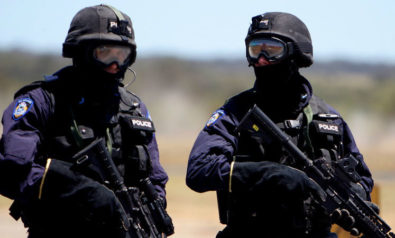


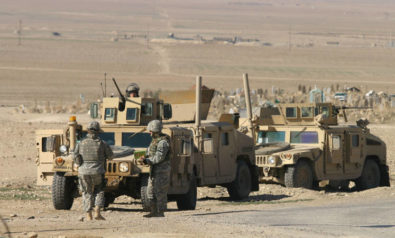
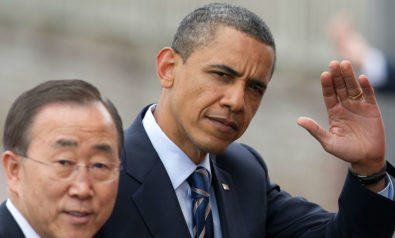

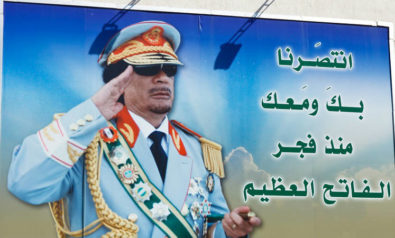





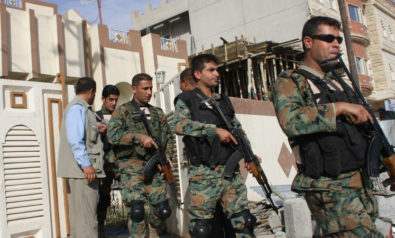
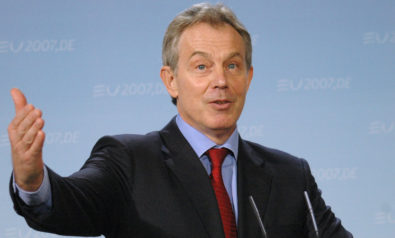


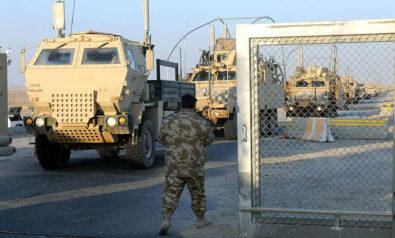





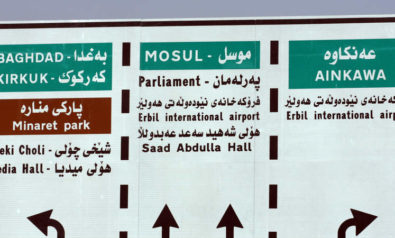
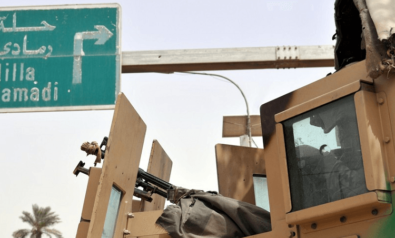


Comment